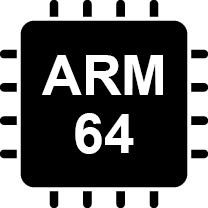mfplat.dll : Free Download
About mfplat.dll
About mfplat.dll errors
When an application requires mfplat.dll, Windows will check the application and system folders for this .dll file. If the file is missing you may receive an error and the application may not function properly. Learn how to re-install mfplat.dll.
- This application has failed to start because mfplat.dll was not found. Re-installing the application may fix this problem.
- mfplat.dll Not Found.
.DLL Error Example
Possible fixes for mfplat.dll errors
To fix .dll errors, you can try a few basic steps. While some errors might need more detailed fixes, these initial steps often solve common problems.
- Re-Install the application that requires mfplat.dll.
- Update the application to the latest version.
- Install all Windows updates and any available driver updates.
- Download and install mfplat.dll.
- View our guide: How to fix .dll errors.
- Did you know? You may already have this file even though you are getting .dll errors. That's because the .dll file may have been moved or renamed by another application. Check to see if you already have mfplat.dll on your computer. For more information see how to search your PC for .dll files.
How to register mfplat.dll
Download mfplat.dll
Select the .dll version to download. In most cases, this would be the latest version (32/64-bit) from the appropriate company.
- Version
- 12.0.10586.494 (th2_release_sec.1606301736)
- Product Version
- 12.0.10586.494
- Language
- 1033 (U.S. English)
- Size
- 903.9KB
- SHA1
- 0f0ed661a8415e96d852cb9a82dc5a575347cded
- MD5
- a489cecf560ea0421c04277904210395
- Comment
- yes
- Version
- 12.0.10586.494 (th2_release_sec.160630-1736)
- Product Version
- 12.0.10586.494
- Language
- 1033 (U.S. English)
- Size
- 1MB
- SHA1
- b946eb63f0506e645b6815b504a74f5018e0deb1
- MD5
- e3bf6cde2dde478e88667f1c9f33dbbc
- Version
- 12.0.9600.17489 (winblue_r5.1411131500)
- Product Version
- 12.0.9600.17489
- Language
- 1033 (U.S. English)
- Size
- 782.8KB
- SHA1
- 4a4c5b12b9989b6fa6636ecf965c8ab08cc7ba82
- MD5
- 94743d320ba649382829a5fe8c12ddf1
- Version
- 12.0.9600.17489 (winblue_r5.1411131500)
- Product Version
- 12.0.9600.17489
- Language
- 1033 (U.S. English)
- Size
- 939.7KB
- SHA1
- faec07296b88d05ac477600bb30be27429b53918
- MD5
- a7f1bc7115123d2f17a4251149984080
- Version
- 12.0.9600.17415 (winblue_r4.1410281500)
- Product Version
- 12.0.9600.17415
- Language
- 1033 (U.S. English)
- Size
- 782.8KB
- SHA1
- 186b4ce83ef751e2dcd928cdafc1d1eb6b577354
- MD5
- 44429583601975e49b7aa87aacada15e
- Version
- 12.0.9600.17415 (winblue_r4.1410281500)
- Product Version
- 12.0.9600.17415
- Language
- 1033 (U.S. English)
- Size
- 939.7KB
- SHA1
- 26c44e37cd26de903ffa7f15c2fa785d26e58cd8
- MD5
- 88e9c21a10a4dc7f66288651ae3001d9
- Version
- 12.0.9600.17238 (winblue_gdr.1407232018)
- Product Version
- 12.0.9600.17238
- Language
- 1033 (U.S. English)
- Size
- 861.5KB
- SHA1
- fa26dd26b7a3c850fca8341d7e64a800d61724b6
- MD5
- c40de04ce3a8905eb8048b5ce0951df0
- Version
- 12.0.9600.17031 (winblue_gdr.1402211952)
- Product Version
- 12.0.9600.17031
- Language
- 1033 (U.S. English)
- Size
- 690.5KB
- SHA1
- c80a1b2acd5f245a0b046df1778d7545df9a72ba
- MD5
- 1b41e17f1f28b2762c2683f07f1caac7
- Version
- 12.0.9600.17031 (winblue_gdr.1402211952)
- Product Version
- 12.0.9600.17031
- Language
- 1033 (U.S. English)
- Size
- 861KB
- SHA1
- 5db5bc9e1a02d7d4e21426a0892b285aab7aa168
- MD5
- c70734ad4525b99b8c1f065898de6eef
- Version
- 12.0.9600.16442 (winblue_gdr.1310221819)
- Product Version
- 12.0.9600.16442
- Language
- 1033 (U.S. English)
- Size
- 852.4KB
- SHA1
- 6e3c0af5223856b187c2cd8af3a435900b5dfce3
- MD5
- 029d89926a1c52c785b4f2e697fd7105
- Version
- 12.0.9600.16403 (winblue_gdr.1309122014)
- Product Version
- 12.0.9600.16403
- Language
- 1033 (U.S. English)
- Size
- 681.9KB
- SHA1
- ac42f3304a92ecc008bd86c1e5488990300d1546
- MD5
- a025c2e91e91c9c74e9056b34b5888c1
- Version
- 12.0.9600.16403 (winblue_gdr.1309122014)
- Product Version
- 12.0.9600.16403
- Language
- 1033 (U.S. English)
- Size
- 851.9KB
- SHA1
- 5068b03d202b446121fd09336d3a9bab969e29e7
- MD5
- a2495fd348fa2d8215cc5ce8385d9b65
- Version
- 12.0.9600.16384 (winblue_rtm.1308211623)
- Product Version
- 12.0.9600.16384
- Language
- 1033 (U.S. English)
- Size
- 675.3KB
- SHA1
- 1d01a596f77e5f75d6e4bfad7b92aebba72548ae
- MD5
- 521f596fd8256c6a2b09405d65268c52
- Version
- 12.0.9600.16384 (winblue_rtm.1308211623)
- Product Version
- 12.0.9600.16384
- Language
- 1033 (U.S. English)
- Size
- 843.3KB
- SHA1
- 91523b32025507e26ae430eed1f9712800a2027d
- MD5
- 87ccd8c2e28d659152f9218d618192dc
- Version
- 12.0.9200.16384 (win8_rtm.120725-1247)
- Product Version
- 12.0.9200.16384
- Language
- 1033 (U.S. English)
- Size
- 597.6KB
- SHA1
- 6a2678bda87c6a903c161b13b21f743b47b1aa3f
- MD5
- 0a3b0b5144da5fc7180d3fc526078f8c
- Version
- 12.0.7601.24499 (win7sp1_ldr.1906120600)
- Product Version
- 12.0.7601.24499
- Language
- 1033 (U.S. English)
- Size
- 346.5KB
- SHA1
- 40fea2d857672b7bb072e1ccff19f5a5d30666be
- MD5
- 0e34c301df7ecf9c9e9649e87e284b70
- Version
- 12.0.7601.24499 (win7sp1_ldr.1906120600)
- Product Version
- 12.0.7601.24499
- Language
- 1033 (U.S. English)
- Size
- 423KB
- SHA1
- b3a13da0514a6bf193e0c90e8064f1aad69b7802
- MD5
- 408d19fdc983377c2521fe3f70725409
- Version
- 12.0.7601.24382 (win7sp1_ldr.1902100600)
- Product Version
- 12.0.7601.24382
- Language
- 1033 (U.S. English)
- Size
- 346.5KB
- SHA1
- 3dd9e3ae4ca0e3d962b507f51ca4aa67c2de7429
- MD5
- 20175a14987389bb3e104e5f8553b3b3
- Version
- 12.0.7601.24382 (win7sp1_ldr.1902100600)
- Product Version
- 12.0.7601.24382
- Language
- 1033 (U.S. English)
- Size
- 423KB
- SHA1
- 0302ce204519e90b7f4c57def8888c0a15b45b5f
- MD5
- 4645e2c47ac8fed80d94f5b8c6483945
- Version
- 12.0.7601.23403 (win7sp1_ldr.160325-0600)
- Product Version
- 12.0.7601.23403
- Language
- 1033 (U.S. English)
- Size
- 346.5KB
- SHA1
- 031404c7852a6ca5182fa8e4c9135116c251345a
- MD5
- 2592a48f3d3e978ef53ebfdec58797e6
Request a different version or variant.
Requests can improve your odds of success and increase the speed in which the .dll file is found.
Similar .DLL Files
You may be interested in learning about these similar dll files.
Repository




Web Tools (View All)
If a program stops working after replacing a .dll file, always revert to the original .dll. The new file might be incompatible or corrupted, causing the malfunction.
